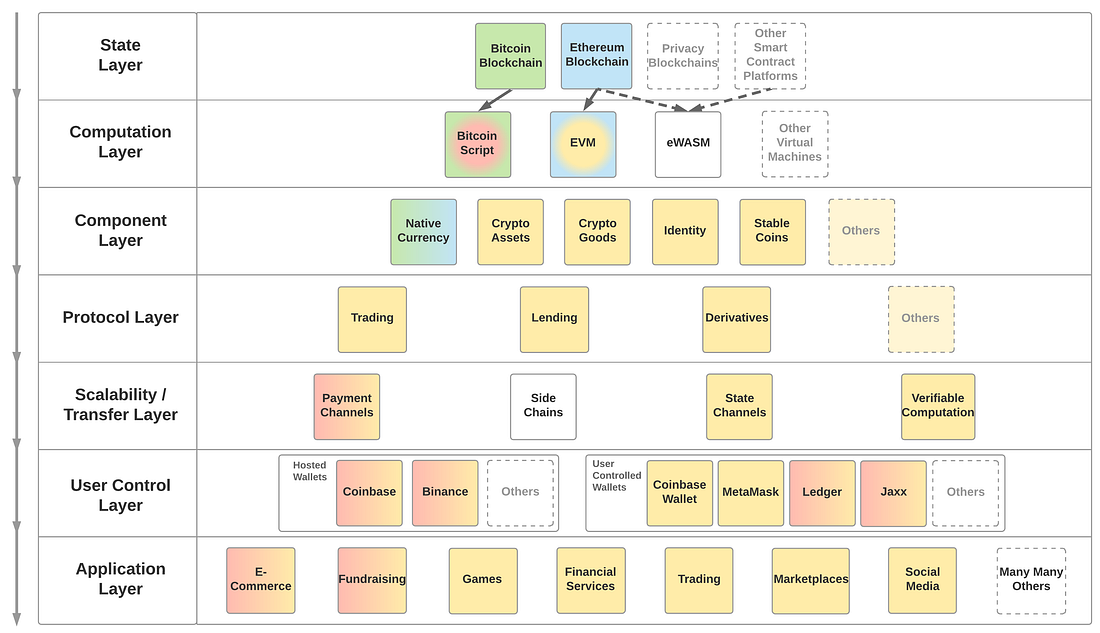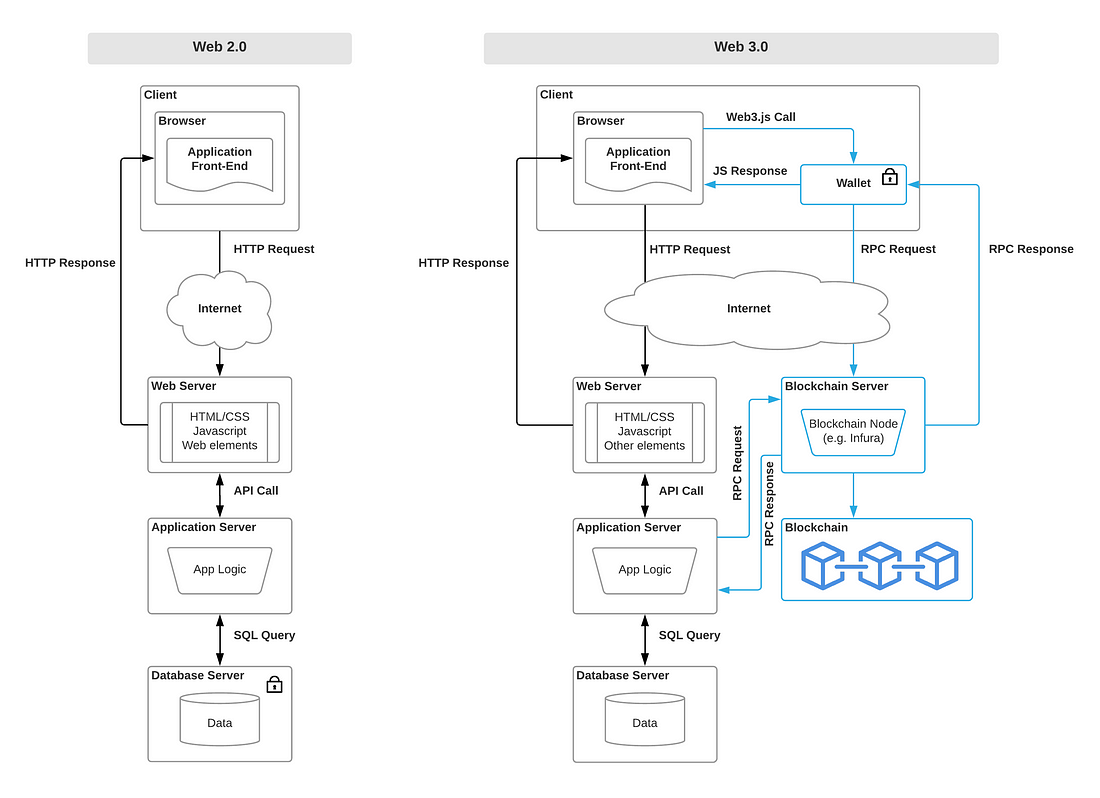Coinbase has published an in-depth blog post illustrating how the technological breakthroughs currently taking place in cryptocurrency and blockchain are giving birth to the broader Web 3.0 revolution. The three part publication breaks down the shortcomings in today’s Internet, how Web 3 is going to change the world, and how Web 3 is being built.
Missing Properties in Today’s Internet
According to Coinbase, today’s Internet is missing two key properties:
- It doesn’t hold “state”, independent of trusted operators
- It doesn’t have a native mechanism to transfer state
“Lack of state is a result of the simplicity of the protocols that the [current] web is built on, such as HTTP and SMTP,” Coinbase explains.
The post continues,
“At any moment, if you were to query a node (a device connected to the internet) about its history or current state, it has no idea. From a user’s perspective, this would be like using the internet for the first time from a new browser (no history, favorites, saved settings or auto-complete), every time you use anything connected to the internet. Imagine having to submit your user information every time you’re trying to use a service or downloading all your favorite apps every time you open your device. The internet would not be useable, or at least extremely inefficient.”
State is crucial to the development of Internet services and applications, and as a result, cookies have been invented for web-based applications to preserve state on local devices. However, cookies are controlled by service providers, not the user, which limits user control.
Large internet companies like Google and Facebook have also attempted to address this issue by storing user states on their own internal machines.
“There’s nothing inherently wrong with this, as their users have benefited from services and value created by [these] same companies,” writes Coinbase. “The problem lies in how the internet benefits these centralized companies way more than it does the public.”
The byproduct of the state issue is that there is no native mechanism capable of transferring state. Since state and the value it creates can’t be held, it consequently can’t be transferred.
“The ability to easily and efficiently transfer value is at the heart of economic development and modern finance. Any improvement in how efficiently you can transfer value has cascading positive effects. Today’s internet has made it easier to transfer information by orders of magnitude and thus has created immense potential for new businesses and services. However, if there’s no easy way for businesses to trade value, they need to find another way to profit from their services.”
The internet has therefore had to rely on advertising as its primary business model for efficiently storing and transferring the states of internet users. This creates misaligned incentives between users and established businesses depending on third-party intermediaries profiting from advertising transactions. A new direction for the internet would provide greater economic growth for all, while also providing better services and security to users.
Coinbase therefore proposes an effort in the coming decades to create opportunities for native economic value for any internet participant, complete with the functionality to transfer this value to anyone:
“With the invention of blockchains, thanks to Satoshi Nakamoto and other academics before her/him/they, we now have a way for each participant in a network to hold and transfer state in a digitally native format. Many developers and entrepreneurs around the world have started to build (or #BUIDL, as the case may be) on this new state layer. With the advent of open platforms such as Ethereum, this is becoming easier by the day. As people become aware of what these new capabilities allow them to do, they have started to rally around the cry for an internet that is more open and fair, otherwise known as Web 3.”
Suggested Reading : Learn what we think of Coinbase in our Coinbase review.
Cryptocurrency and Blockchain Models are Blazing the Trail for Web 3
Coinbase believes that the technological advances being made through the cryptocurrency and blockchain ecosystem are laying the necessary groundwork for the Web 3 revolution. The Web 3 stack is best illustrated by the following model rooted in the Bitcoin and Ethereum blockchains:

This holistic picture of the Web 3 stacks shows how all of the modular components within the system preserve state for all participants while preventing vendor lock-in to layers beneath them. The Web 3 stack creates healthy competition and allows each layer to preserve the value it creates without “having to worry about what happens if the rules of the game get changed later on.”
Building Web 3
The user controlled Web 3 Internet is predicated on creating new infrastructure for application development, complete with new client functionalities and requirements.
“The architecture of Web 3 applications introduce additional elements to the current Web 2.0 framework, as well as new building blocks and tools for a developer to get familiar with,” explains Coinbase.

The universal state layer of Web 3 allows applications to put some or all of their content and logic onto public blockchains, making data public and accessible to anyone. This allows “users to exert direct control over this content and logic.” With Web 3, users won’t necessarily need accounts or privileged API keys to interact with what’s on the blockchain.
Coinbase recommends checking out Cryptozombies for a helpful crash course for developers interested in making their first Web 3 app:
“Although the way to build Web 3 apps will change in many ways as the infrastructure around it evolves, what’s key is that apps are being built today. It’s the wild west of the web as we know it and a lot of really smart teams are starting to tackle the challenges and opportunities made available.”
Images sourced from the original Coinbase blog post.

Unhashed.com is author of this content, TheBitcoinNews.com is is not responsible for the content of external sites.
Our Social Networks: Facebook Instagram Pinterest Reddit Telegram Twitter Youtube











